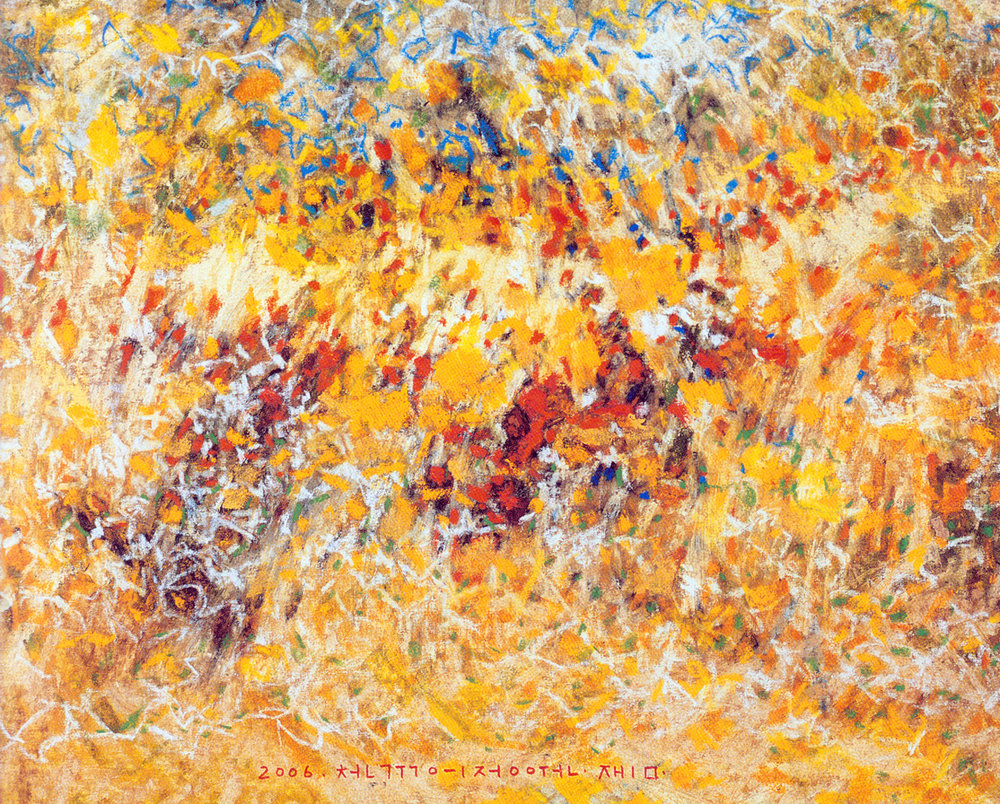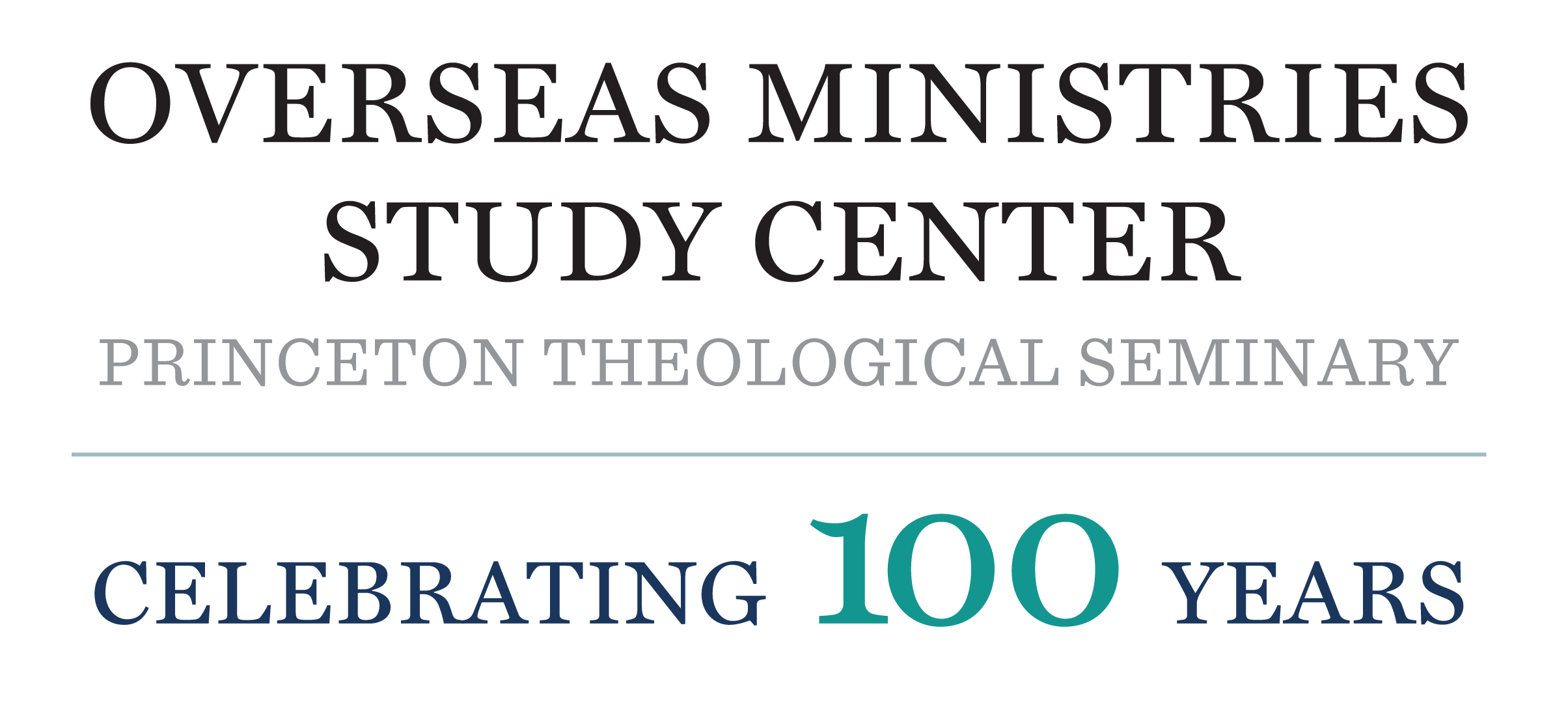By Heath Dewrell – Assistant Professor – Department of Middle Eastern Studies, University of Texas at Austin.
This is the third in a series of eight posts that spotlights paintings from our Artist in Residence program in dialogue with Christian scripture to offer spiritual windows for reflection and prayer. These reflections are based on Princeton Seminary’s Summer 2022 Chapel series. You can view the service from which this post is based HERE
SCRIPTURE READING: Genesis 2:8-14
This painting by Jae Im Kim is entitled the Garden of Eden. When I first saw it, the painting took me by surprise, because it doesn’t look anything at all like the Garden of Eden in my imagination, or in most pictures found in storybook Bibles or on Sunday school felt boards. Normally, I envision Eden as green, and quiet, and still. That’s because when I picture perfection, I picture a state at which I have arrived, a place where I can rest, a place where nothing can—or should—change, because if things are perfect, then change can only be for the worse.

But this painting pushes me to rethink my assumptions about perfection, because my idea of perfection doesn’t necessarily map onto what Genesis 2 actually presents. Genesis 2 describes the Garden of Eden as full of trees giving fruit and rivers flowing out over the face of the earth. Eden is a vibrant place, full of movement, even before humans come on the scene. While much changed after human disobedience in the Garden, Genesis does not present the changing seasons as a new state of affairs after the so-called “Fall.” While not as explicit as in Genesis 1, where the times and the seasons are presented as the organizing principle of God’s “very good creation,” Genesis 2 seems to assume spring, summer, autumn, and winter with the trees giving fruit in their season as God’s perfect state of affairs, right from the start.
And this painting, to me at least, brings to mind what the Garden of Eden would have looked like on an autumn afternoon with its dazzling reds and yellows. The hints of green that remain remind me of a spring and summer that are fading away, and the blues draw my mind ahead to a winter that is just over the horizon. Far from a still and quiet place, the Eden here is an “Eden on the move.”
And, again, this invites me to rethink my assumptions about perfection. The perfection of Eden is not a finished and done perfection, where everything is exactly as it should be and where nothing can ever change. Eden’s perfection is a perfection of activity and movement, where constant change is part and parcel of its perfection.
I think this is important, because too often I find myself focusing on “arriving.” The present is something to be gotten through, a season that will pass, and eventually I’ll get to the place where I’m going. Then things will be right; everything will be “perfect.”
And that’s an easy attitude to have for those of us who have spent a significant amount of time in school. We work to get through elementary school so that we can get through middle school to get through high school to get through college to get through graduate school so that eventually we’ll be all done and arrive at our true destination. For those studying to become pastors, you may be working to get through biblical language studies so that we can get through your exegesis class so that you can satisfy ordination requirements and eventually arrive at the place where you feel called to be.
And that is not necessarily a bad thing, but focusing on the endpoint as “the place where we feel called to be” can miss the reality that God’s perfection is not a single moment. It is not a destination. It is a process in which we live into each moment in its season. Because while there is a place that each of us are called to be one day, there is also a place that each of us are called to be right now.
Many seasons of life are often challenging, exhausting, and frustrating to be sure, but many of them are also exactly what God has called us to embrace and live fully into while it is here. It is a way station along the way to where we’re going, but the journey is just as much a part of God’s calling as the destination is.
Let us then rethink Eden, rethink perfection, and embrace the energy, vitality, and movement that God’s creation and God’s calling has to offer.



